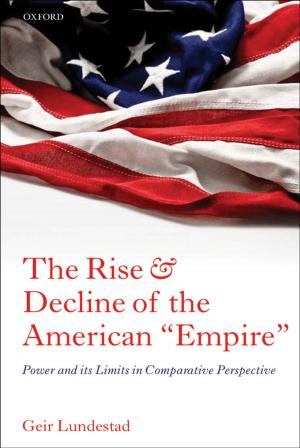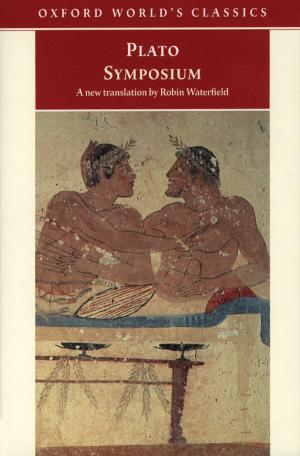Domestic Colonies
The Turn Inward to Colony
Nonfiction, Social & Cultural Studies, Political Science, Politics, History & Theory, Religion & Spirituality, Philosophy| Author: | Barbara Arneil | ISBN: | 9780192525123 |
| Publisher: | OUP Oxford | Publication: | October 6, 2017 |
| Imprint: | OUP Oxford | Language: | English |
| Author: | Barbara Arneil |
| ISBN: | 9780192525123 |
| Publisher: | OUP Oxford |
| Publication: | October 6, 2017 |
| Imprint: | OUP Oxford |
| Language: | English |
Modern colonization is generally defined as a process by which a state settles and dominates a foreign land and people. This book argues that through the nineteenth and into the first half of the twentieth centuries, thousands of domestic colonies were proposed and/or created by governments and civil society organizations for fellow citizens as opposed to foreigners and within their own borders rather than overseas. Such colonies sought to solve every social problem arising within industrializing and urbanizing states. Domestic Colonies argues that colonization ought to be seen during this period as a domestic policy designed to solve social problems at home as well as foreign policy designed to expand imperial power. Three kind of domestic colonies are analysed in this book: labour colonies for the idle poor, farm colonies for the mentally ill and disabled, and utopian colonies for racial, religious, and political minorities. All of them were justified by an ideology of colonialism that argued if people were segregated in colonies located on empty land and engaged in agrarian labour, this would improve both the people and the land. Key domestic colonialists analysed in this book include Alexis de Tocqueville, Abraham Lincoln, Peter Kropotkin, Robert Owen, and Booker T. Washington. The turn inward to colony thus requires us to rethink the meaning and scope of colonization and colonialism in modern political theory and practice.
Modern colonization is generally defined as a process by which a state settles and dominates a foreign land and people. This book argues that through the nineteenth and into the first half of the twentieth centuries, thousands of domestic colonies were proposed and/or created by governments and civil society organizations for fellow citizens as opposed to foreigners and within their own borders rather than overseas. Such colonies sought to solve every social problem arising within industrializing and urbanizing states. Domestic Colonies argues that colonization ought to be seen during this period as a domestic policy designed to solve social problems at home as well as foreign policy designed to expand imperial power. Three kind of domestic colonies are analysed in this book: labour colonies for the idle poor, farm colonies for the mentally ill and disabled, and utopian colonies for racial, religious, and political minorities. All of them were justified by an ideology of colonialism that argued if people were segregated in colonies located on empty land and engaged in agrarian labour, this would improve both the people and the land. Key domestic colonialists analysed in this book include Alexis de Tocqueville, Abraham Lincoln, Peter Kropotkin, Robert Owen, and Booker T. Washington. The turn inward to colony thus requires us to rethink the meaning and scope of colonization and colonialism in modern political theory and practice.















